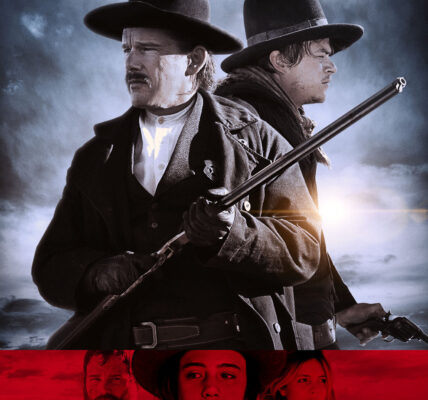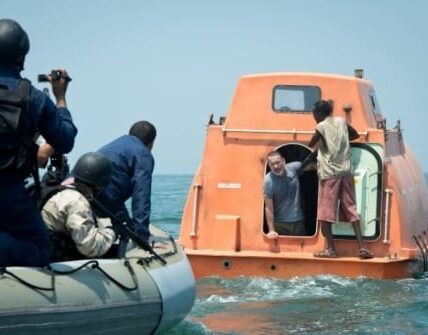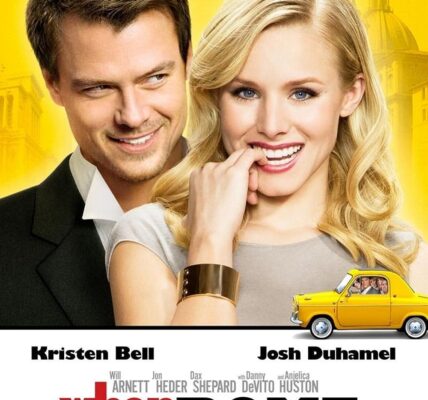Has getting to the point of seeing your first screenplay put into production been a hard slog?
I wrote the play when I was living in New York in probably 2004, so it’s been a long process. But there was a whole period of about a year-and-a-half or two where I just sat on my computer. I’m also an actor, and people generally don’t like to get scripts from actors. But I was able to get it to my friend Bryce [Dallas Howard] and she very much responded to it, and we did it together just as a little project for ourselves, because we really believed in the story.
The film is about a terminally ill girl and a death-obsessed young man who is friends with the ghost of a Japanese kamikaze pilot. How did this story come about?
I had three little ideas and scenes. One was a young girl with a terminal illness who was playing Operation, the board game, with her older sister. The other was a story about a teenage boy who was in love with death and they had this relationship. And the other was this grandiose, pretentious, docutheatre thing I was doing about Japan during the Second World War. None of them were really working on their own but, for some reason, when I put them together, it seemed to work.
My father’s a paediatric oncologist and I grew up around a lot of these children, who were my friends, and I would see him go to funerals all the time. So I had this early relationship to [sic] death, and it’s obviously affected me. With all due respect to films that came before [that dealt with cancer], I never found that it’s necessary to see everything, because I find it almost manipulative. I felt like I wanted to keep the illness present, but in my mind it’s a movie about life, it’s not about death.
Did the kamikaze character stem from your general interest in the theme of death?
My family’s from China, and I grew up hearing stories about the war. Also, I read this book Japan At War, that was all oral history, and just became fascinated with that time period, and the psychology, and that culture. It was just such a cauldron of intense emotions. So, I just wanted to see if I could marry it with this odd story, because they all seemed to be dealing with death, one way or another.
I feel that in Japanese culture there is a real romanticism of death and that has always moved me. I think in Western culture, and in America especially, we have the attitude of ‘don’t talk about death and dying, it’s ugly’. I was always moved by the Japanese mentality that there is beauty in death.
 You admit that you have had no screenwriting training, so how did you approach getting this story down in traditional screenplay format?
You admit that you have had no screenwriting training, so how did you approach getting this story down in traditional screenplay format?
It’s funny because I found out [about proper scriptwriting] terms after. I was like, ‘The second act turn? What are you talking about?’ I never took a screenwriting class so it was more, ‘Oh, I feel like this needs to happen now. This needs to happen now’ and it came organically. I did get a lot of help from Ron Howard, who really brings that old-school structuralism. Which helped because if it were left up to me, I would have two characters talking in a room all day. I’m a playwright; I started out as a playwright. I think it was a good marriage of style all across the board, from producer to everybody that’s been involved.
So you were open to suggestions about your script, even if it meant making changes?
Yeah, but I come from the theatre so I really enjoy collaboration. Screenwriters are going to kill me for this, but I consider a script a blueprint for a collaboration; I don’t think it’s gospel. I think if you really want something like a novel or poetry, that’s something that’s a personal snapshot of something that’s inside of you. But it’s odd to have delusions when someone’s giving you a million dollars that they aren’t going to want to have a say in what the final project is. It is about navigating.
What was it like having Gus Van Sant direct your first produced screenplay?
Well, they asked me to make a list of directors and I put him right at the top. He is incredible with two things that I think were essential for this movie: his portraits of youth are always, I feel, very authentic and moving; and he often deals with death and outsiders. He treats outsiders with respect, and that was something that was essential to me. It could have gotten very washed over.
The ending of the film is very strong but also very ambiguous; did you always have it playing like that in your mind?
I don’t like speeches at the end of films when somebody comes up and says, ‘This is what the movie’s all about’. I’m very influenced by French cinema—you’d be very hard-pressed to find a filmmaker who’s not influenced by the nouvelle vague—and it always blew me away in French cinema where you could have a story and it’s ‘this is the story and it starts here and ends here. We’re just going to show you this part and the implications’. It’s more exciting to me what we imagine he was going to say than anything I could have come up with.
With the release of Restless, would you now define yourself as a screenwriter?
I believe I am. I’ve worked on a couple of specs since and I’m getting them out there. As a writer I’m better when I can generate a story and then people come in. I like to build the furniture by myself, but then I like having others help me move it around.











